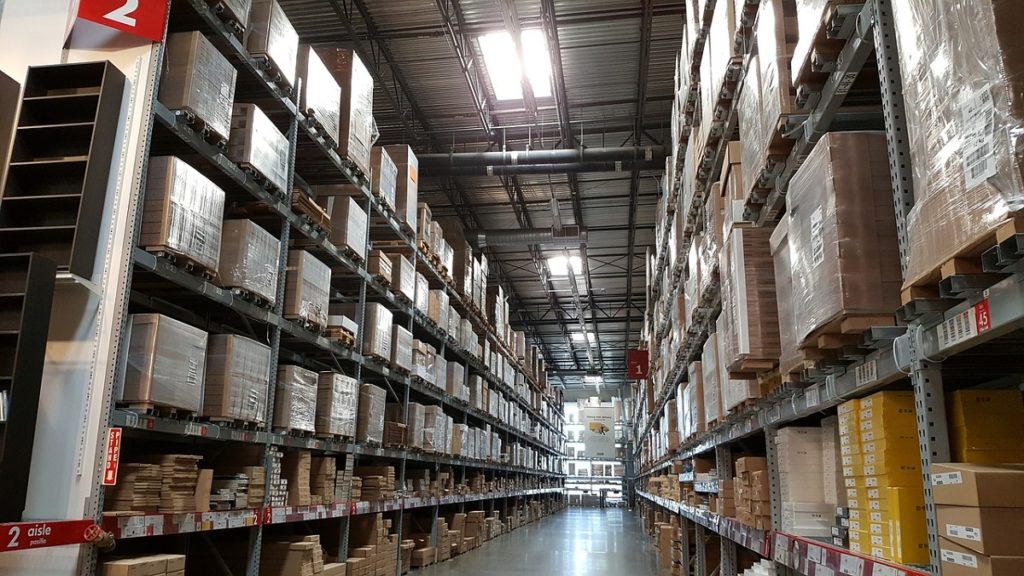Throughout much of human civilization, storing goods and ensuring that they are kept in good condition for years to come has always been an integral part of technological development. With an ever-growing population, many cultures and demographics have always been looking for ways to extend the shelf life of many products. The fact that storage has played a crucial role in ensuring that food and perishable products do not spoil has played a key role in different technological innovations throughout the ages.
Whether it’s drying meat, brewing beverages, fermentation, or freezing, storage has played an integral part in our history. As technology progresses, newer methods of storing products don’t necessarily have to deal with food and perishable products. Mass production of devices, apparel, and electronics has increased in demand in the past few decades.
In addition to an ever-increasing demand for these products, many industries are now setting their sites on e-commerce industries, especially when having a steady online presence has a variety of advantages over those that only resort to traditional retail strategies.
This is one reason warehouses have become an even more important part of storing goods, products, and raw materials. In industries like the E-commerce sector, warehouses are mainly being used to keep many items on stock so that they can be readily shipped to individuals when they make orders. Of course, warehouses aren’t just limited to being used for the e-commerce industry since industrial complexes can also use them to streamline batch delivery processes.
But even though many business owners and employers might think finding a functioning storage space means that you’ll need to find a spacious and large building, that’s not necessarily the case. Here are some factors that you can weigh in on when it comes to getting yourself a highly functional storage space.
Factors to Consider When Laying Out Your Storage Space
One of the most important parts of storing your goods and products is having a storage space that caters to your own specific needs. Just because you could rent or have your own warehouse doesn’t necessarily mean that you should. Ultimately, this will depend on various key factors that you’ll need to keep in mind.
Still, storage space efficiency, both in terms of inside and outside the warehouse, can affect the general flow of daily operations. So what are some factors to consider?

Scale your warehouse
You’ll need to forecast and predict the stocks that you have at the current moment. If your business has a steady flow of orders, you might need more stock than usual. Most experts would suggest forecasting your stock by living at least a good amount of space for future stock profiles.
You don’t have to spend too much
It’s important to note that if you’re still a small business, such as someone that just started in the e-commerce industry. If you can’t afford to layout your own storage space, you might want to consider using your home as a temporary storage space for products that you can sell. Don’t have enough space for storing products and keeping them in a cool and dry environment?
Fortunately, cabinet manufacturers can produce high-quality multi-purpose cabinets that you can use for your own benefit. Whether you’re using it to store goods that you plan on shipping out, equipment for your employees, or simply residential use, having cabinets can come in handy for storage.
Adaptability Is Key
Another factor that will always be a cornerstone to any business development is adaptability. Although forecasting in itself is part of adaptability, there are other aspects of your business that you’ll need to keep in mind. Your business should be quick on its feet in adapting since this will help maintain business continuity, even in troubling times.
Even when your sales volumes will increase, or the product design will change, you’ll need to find additional space for different “versions” of the product. That said, you’ll need to design your space to be adaptable to sudden shifts in trend.
When keeping your storage space in a functional condition that’s ready to ship out orders as soon as possible, you’ll need to ensure a comprehensive plan for your stock. Storage space is required in an effective supply chain operation, which can also increase your revenue margins. Still, you’ll need to place some emphasis on getting a comprehensive understanding of supplier measurement and building rapport with your suppliers. This way, you can manage and run a business efficiently and effectively without any errors in its operations.




